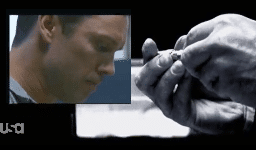I’ve seen this technique a few times on television shows, and I’d love to think about how to apply it in my fiction.
My kids love the cartoon Phineas and Ferb. The main characters’ older sister, Candace, always tries to get her brothers in trouble for their crazy inventions. She is also 15 and majorly boy crazy, especially for a boy named Jeremy.
Whenever the writers need Candace to do something or go somewhere that she might not otherwise, all they have to do is bring Jeremy into it, even indirectly. Whether she’s shopping for a gift for him, trying to impress him or going to see him, he’s one sure way to motivate Candace.
Jeremy is also great for her internal conflict. She often has to choose between her two biggest goals—be with Jeremy or bust her brothers.
 Another example I’ve noticed recently is in Psych. Shawn runs a psychic detective agency with help from his best friend, Gus. However, Gus has another full time job: he’s a pharmaceutical sales rep. His car—the only transportation they have—is a company car (which is comical in its own right). Gus’s job and using the company car are both stock conflicts in the series. If the writers need to add more conflict in the scene or between the main character and his best friend, Gus’s job is their go-to choice (and girls, when they’re both single).
Another example I’ve noticed recently is in Psych. Shawn runs a psychic detective agency with help from his best friend, Gus. However, Gus has another full time job: he’s a pharmaceutical sales rep. His car—the only transportation they have—is a company car (which is comical in its own right). Gus’s job and using the company car are both stock conflicts in the series. If the writers need to add more conflict in the scene or between the main character and his best friend, Gus’s job is their go-to choice (and girls, when they’re both single).
Naturally, in a series (book or TV), you have more opportunities to develop and use these stock conflicts, but I think they can be useful in standalone novels—as long as you keep the conflict fresh.
What do you think? How have you used “stock conflicts” in your work?
 I love Burn Notice because of the characters. Namely one Michael Westen. (And no, I don’t mean Jeffrey Donovan, though he is quite attractive. I mean Michael Westen.) When USA says “Characters welcome,” they mean it.
I love Burn Notice because of the characters. Namely one Michael Westen. (And no, I don’t mean Jeffrey Donovan, though he is quite attractive. I mean Michael Westen.) When USA says “Characters welcome,” they mean it. Michael breaks into the office, gets the weapon and—sees a photo of a family. With kids. While that reminder helps him put together some of the scant evidence they’ve compiled about this bad guy, I think it also reminds him of the greater good. “I’m not handing over a nuke to save one life,” he tells the bad guy, “even if it is my brother’s.”
Michael breaks into the office, gets the weapon and—sees a photo of a family. With kids. While that reminder helps him put together some of the scant evidence they’ve compiled about this bad guy, I think it also reminds him of the greater good. “I’m not handing over a nuke to save one life,” he tells the bad guy, “even if it is my brother’s.” 